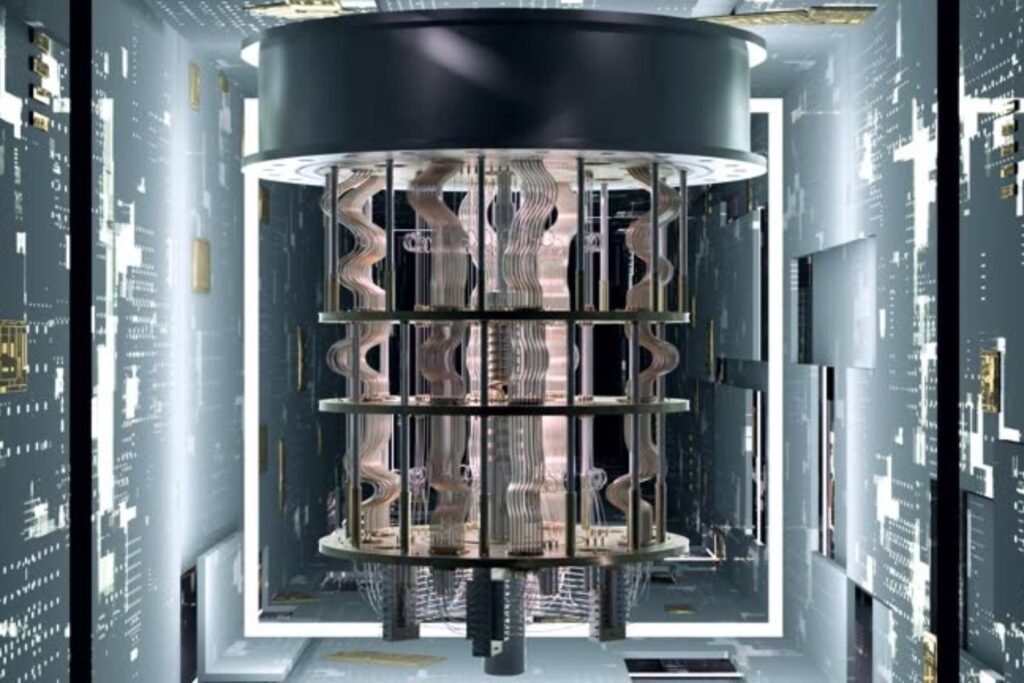Microsoft and the Mystery of the “New State of Matter”: Could it Unlock Quantum Computing?

Since elementary school, we are taught that matter exists in three basic states: solid, liquid, and gas. However, Microsoft claims to have developed a completely new state of matter, capable of powering a quantum computer with the potential to surpass any. This breakthrough revolves around the “topological qubit”, a type of quantum bit based on exotic materials at extreme temperatures. According to the company, this qubit is more stable and less error-prone than current technologies, which could make it the key component for a functional quantum computer.
A race against time in the quantum era?
Quantum computing is the new technological frontier. While Google has developed machines capable of performing calculations unthinkable for a conventional supercomputer, Microsoft is betting on a different strategy. The tech giant has combined semiconductors and superconductors to manufacture a quantum chip capable of operating in extremely cold conditions. According to its scientists, this approach would significantly reduce errors, a key hurdle in quantum computing. But the announcement from Microsoft comes amid an unprecedented geopolitical race. China has allocated over $15 billion to quantum computing, while the European Union has committed $7.2 billion. The United States, largely through tech giants like Microsoft and Google, is also competing to dominate this technology.
What is a qubit and why does it matter?
Traditional computers process information in the form of bits, which can only represent a 1 or a 0. A quantum computer, on the other hand, uses qubits, which can exist in multiple states simultaneously thanks to quantum superposition. In theory, this means that a quantum computer can perform calculations exponentially faster than a conventional machine. However, most qubits are extremely unstable: any disturbance can cause them to lose their information. Microsoft claims that their topological qubits can avoid this problem. By using a quantum phenomenon called Majorana fermions, quantum information becomes more resistant to errors. This, in theory, would make the construction of more practical and efficient quantum computers easier.
Skepticism and promises: Reality or exaggeration?
Not all experts are convinced that Microsoft has achieved its goal. While the company has built eight topological qubits, it has not yet demonstrated that they can perform practical quantum calculations. Physicist Jason Alicea, from the California Institute of Technology, points out that the existence of topological qubits is a well-accepted theoretical concept, but proving that they work in practice is another story. “Reality may be less optimistic for quantum computing,” he warns. However, Microsoft remains confident. Chetan Nayak, leader of the research team, assures that their technology is only years away from becoming functional, not decades.
The future of quantum computing
If Microsoft manages to perfect their topological qubits, the impact could be enormous. From the development of artificial intelligence to the creation of more efficient drugs and batteries, an operational quantum computer could change multiple industries. But the most unsettling implication is its potential to break current encryption. Quantum computers could decrypt in seconds the codes that currently protect government secrets, banking transactions, and private data. Microsoft has staked its reputation on this project, with the backing of three generations of CEOs, from Bill Gates to Satya Nadella. Now, the big question is: can they deliver on their promise before their competitors?
The verdict is still out, but quantum computing is no longer just a theory. The race has begun, and its outcome could redefine the world as we know it.




